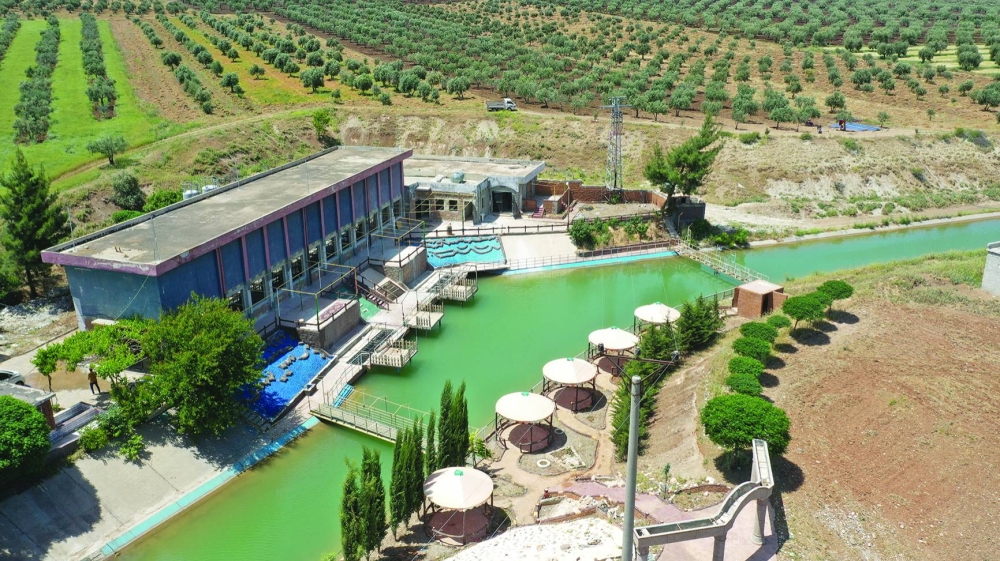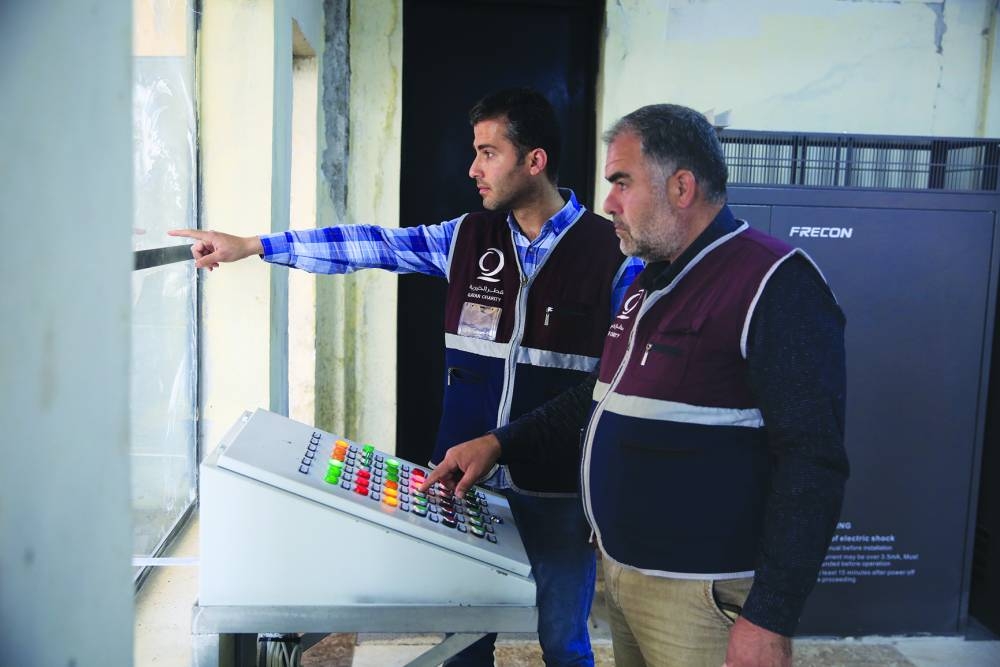Qatar Charity has completed the rehabilitation of the Bablit water station in northern Syria. It has also rehabilitated and cleaned all its main and subsidiary irrigation channels. This station provides irrigation water to approximately 5,000 hectares of cultivated land in the region. The project is part of Qatar Charity’s efforts to empower the local community and support the resilience of internally displaced persons in northern Syria.
The significance of this project has become more pronounced in recent times due to the region's exposure to drought waves and scarcity of other water sources. Additionally, the deterioration of food security in northern Syria highlights the importance, as the region relies on the agricultural sector for 90% of its income sources.
Qatar Charity, through the project, has partially rehabilitated the station along with all its connected irrigation channels, enabling it to operate with a pumping capacity of 1.5 cubic metres per second. This capacity can be increased to 2.5 cubic metres per second upon the complete rehabilitation of the station.
The Bablit station, which has been out of operation since 2012, is considered one of the important stations in northern Syria. It provides the necessary irrigation water for cultivating 5000 hectares. It also enables farmers to cultivate summer crops and have multiple growing seasons in a year from a single plot of land, contributing to an increase in these products in the local market.
Gazi Ajini, head of the Chamber of Agriculture in the northern countryside of Aleppo, stated that this project is considered one of the strategic projects in the region. He added that it has a clear and positive impact on farmers, indicating that it enhances crop productivity and increases cultivated areas, in addition to providing employment opportunities for the local workforce.
The rehabilitation of the water station is part of the activities of the Economic Empowerment and Self-Reliance Support Project in northern Syria, funded by OCHA. The project includes the distribution of cash grants to initiate small projects and support farmers with agricultural inputs. The project has benefited 55 participants engaged in cash-for-work activities through workshops for producing food products from agricultural outputs.

Qatar Charity completes rehabilitation of Bablit water station.

Qatar Charity officials.
